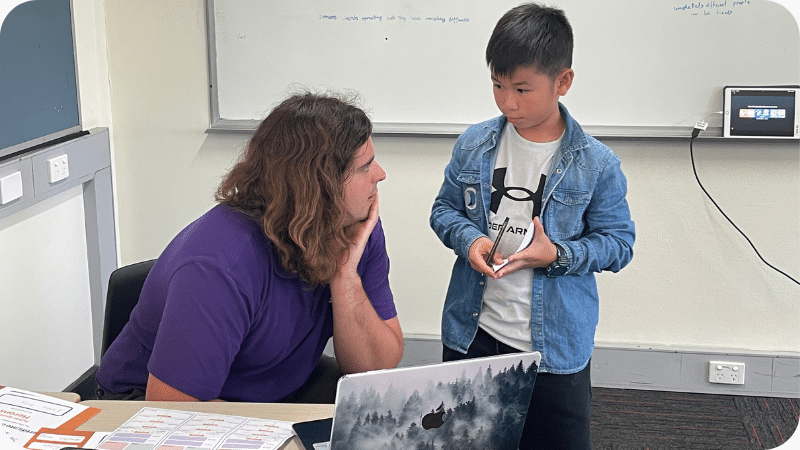EQ vs IQ – Which is more important?
23 March 2023
Who is the main contender?
Many of us have heard the term IQ (‘Intelligence Quotient’) used time and time again over the years.
We’ve all heard that – at least in recent history – it has been used to classify one’s ability and capacity to perform academically or succeed in the workforce (or sometimes life itself).
In fact, one’s IQ score has previously been used to determine one’s right to citizenship, among other exclusion and segregation policies – thankfully, something that has not continued.
However, there has been a huge shift in the last few years from that focusing solely on IQ to that of really valuing the benefits that come with having a high EQ (their ‘Emotional Quotient’) – not only in one’s personal life, but their professional life too!
Defining EQ – what exactly is it?
A textbook definition of EQ is:
“A set of emotional and social skills that influence the way we perceive and express ourselves, develop and maintain social relationships, cope with challenges, and use emotional information in an effective and meaningful way.” (Multihealth systems, 2011)
In more practical terms, we may say that EQ is the ability to understand and manage our own emotions, and subsequently use them not only to reduce stress but to learn how to communicate effectively with others, exhibit empathy, harness resilience, and minimise conflict. Essentially, we are not numbing emotions or losing control of them, but learning how to identify them in ourselves and others, constructively work with them to allow us to form a healthy relationship with ourselves and those around us.
Several psychologists and neurobiologists – and now academics, employers and leaders alike – have all come to honour and embrace the significance of EQ. Not because it’s new or ‘trending’, but rather because it has reemerged, resurfaced and been resuscitated by more hard science! And the proof is in the pudding – emotional intelligence is fundamental for personal happiness and well-being; it makes us better communicators and helps us thrive in our professional and personal lives.
Still not convinced?
Have a good think for a moment.
Consider all the people you know who exude happiness – who have a fulfilled life.
Do they simply have a high IQ, or do they have the capacity to navigate life with self-awareness, empathy, resilience and adaptability?

Help! I need to boost my EQ!
The wonderful news is that EQ is not fixed or set in stone – it is a learned ability that we can continue to develop throughout life, ultimately helping us evolve into the best versions of ourselves.
According to leading EQ experts, what are the three tips to further develop our EQ?
- Stop and think before reacting to a stimulus.
- Think about how your reaction will impact you and others in the short and long term.
- Learn how to listen and when not to respond. Listen deeply before responding.
What can we do as parents?
The first seven years of childhood form the foundations of our child’s character, including their EQ. That is not to say that everything we do after the age of seven becomes irrelevant, rather the first seven years are the most crucial building blocks for EQ.
Parents are the first and most influential emotional coaches, and although this sounds daunting, the key lies in modelling desirable behaviours most of the time – not being ‘perfect’ or ‘flawless’ all the time. Neurobiologist and leading EQ expert, Daniel Goleman, explains that we as parents simply need to show up, listen, empathise, and spend time with our children – showing them what a good human (importantly, not a perfect person) looks like, and the rest will follow.
The importance of ‘showing’ rather than ‘telling’ lies in the development of mirror neurons, which are essentially cells in the brain that are activated and developed by observed action. As the old adage says, “Monkey sees, Monkey do”.
By the time children turn seven, their mirror neurons are more or less developed, and difficult (but not impossible) to change. This loops back to why the first seven years are the most crucial.

How SSA can help?
We at Speaking Schools truly embrace the importance of a holistic educational experience that builds children’s soft skills.
Our programs are aligned with fostering empathy, effective communication, and strengthening self-confidence and resilience in order to prepare our students not only for Debating and Public Speaking, but for their future more broadly!
Our philosophy lies very much in building well-rounded humans that can adapt and evolve in this ever-changing world.
Get in touch to learn more!






